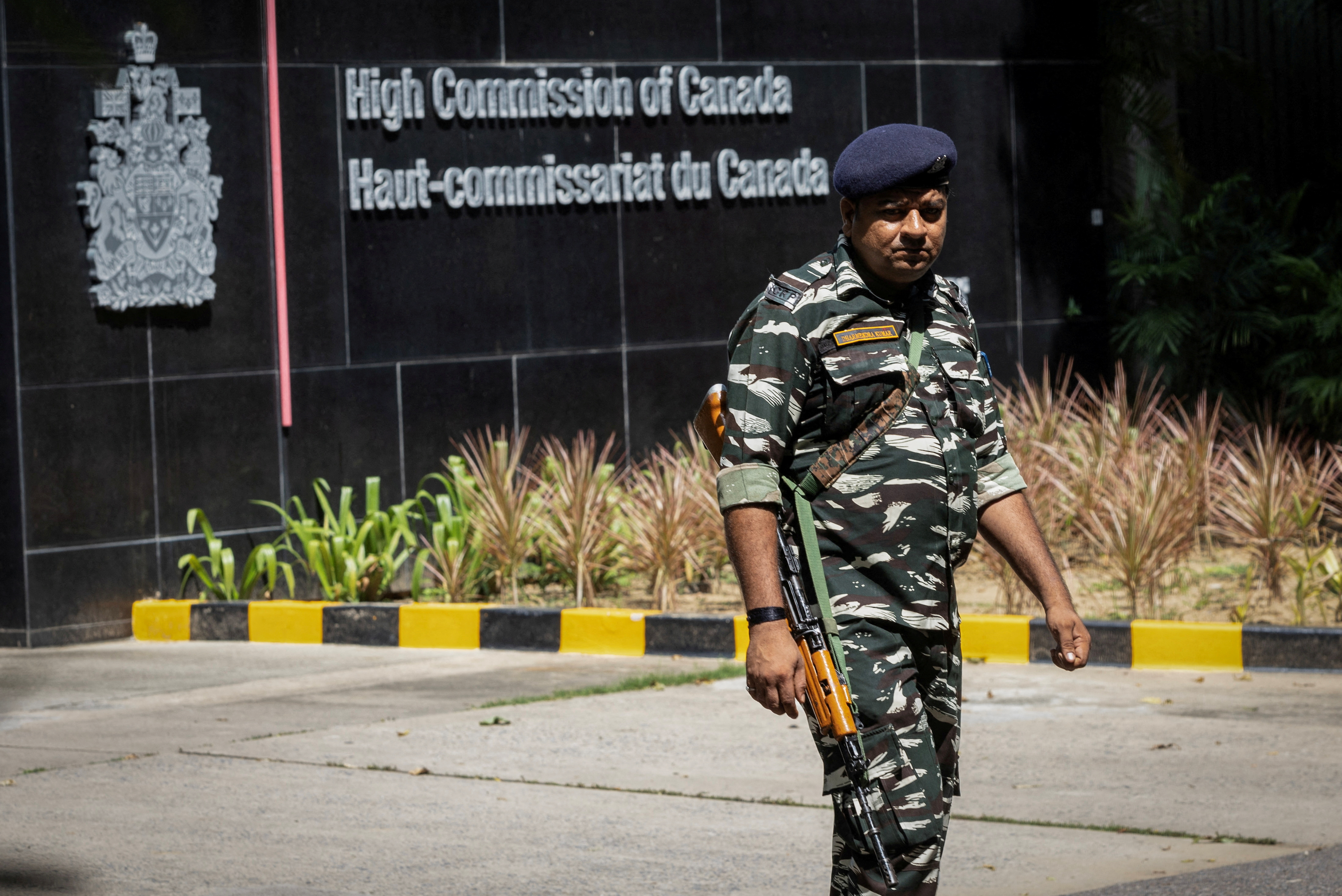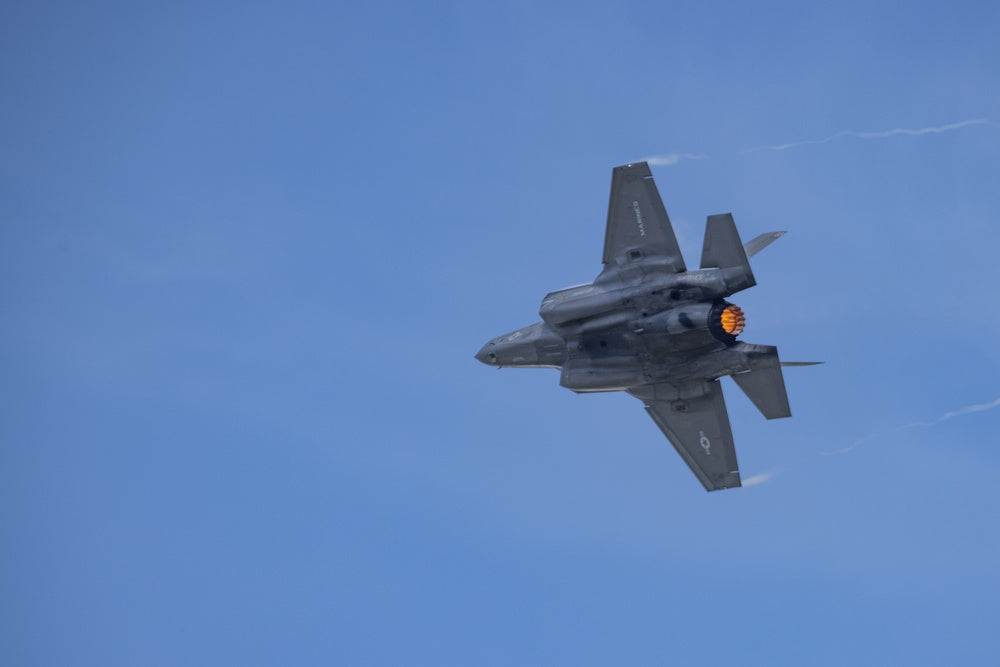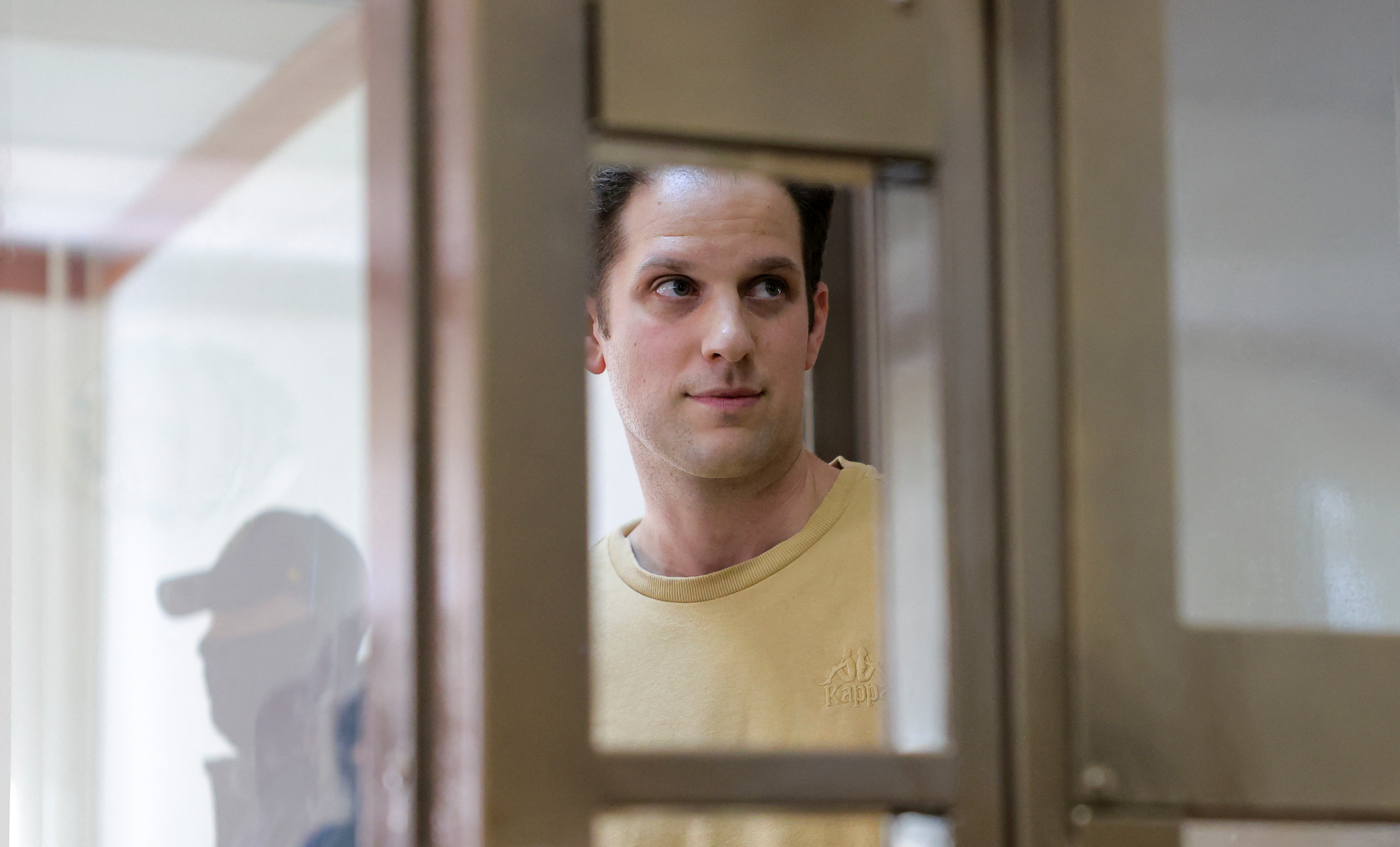
Canada suspects Indian government involved in murder of Sikh leader in British Columbia
PHOTO CAPTION: Representational photo — A security personnel stands guard outside the Canadian High-Commision in New Delhi, India, September 19, 2023. REUTERS/Adnan Abidi
By David Ljunggren and Steve Scherer
OTTAWA (Reuters) -Canada said on Monday that it was "actively pursuing credible allegations" linking Indian government agents to the murder of a Sikh separatist leader in British Columbia in June, dealing a further blow to diplomatic ties between the countries.
Prime Minister Justin Trudeau said in an emergency statement to the House of Commons that any involvement of a foreign government in the killing of a Canadian citizen was "an unacceptable violation of our sovereignty".
Hardeep Singh Nijjar, 45, was shot dead outside a Sikh temple on June 18 in Surrey, a Vancouver suburb with a large Sikh population. Nijjar supported a Sikh homeland in the form of an independent Khalistani state and was designated by India as a "terrorist" in July 2020.
"Canadian security agencies have been actively pursuing credible allegations of a potential link between agents of the government of India" and Nijjar's death, Trudeau said.
He said he had raised the murder directly with Indian Prime Minister Narendra Modi on the sidelines of the G20 summit in New Delhi last week, and urged the government of India to "cooperate with Canada to get to the bottom of this matter".
"Canada has declared its deep concerns to the top intelligence and security officials of the Indian government. Last week at the G20 I brought them personally and directly to Prime Minister Modi in no uncertain terms," he said.
Canada also expelled India's top intelligence agent in the country on Monday, Foreign Minister Melanie Joly said, without providing details. The Indian high commission in Ottawa did not respond to requests for comment.
Trudeau's comments mark a significant escalation in tensions between Canada and the world's largest democracy, with New Delhi unhappy over Sikh separatist activity in Canada.
Modi conveyed his strong concerns to Trudeau at the G20 summit over recent demonstrations in Canada by Sikhs calling for an independent state.
TRADE TIES
The diplomatic strains are now threatening trade ties, with talks on a proposed trade deal now frozen. Canada has given few details for the impasse while India has cited "certain political developments."
Bilateral trade in 2022 amounted to just C$13.7 billion ($10.2 billion) out of Canada's total of C$1.52 trillion, according to Statistics Canada.
"We are deeply concerned about the allegations referenced by Prime Minister Trudeau earlier today," U.S. National Security Council spokesperson Adrienne Watson said in a statement released late on Monday night.
Trudeau did not directly accuse India of being involved in the murder and Foreign Minister Joly later used more cautious language, saying "if proven true" the allegations would be unacceptable.
British Columbia's Integrated Homicide Investigation Team said last month there were three suspects, though no arrests have been made.
Canada has the highest population of Sikhs outside their home state of Punjab in India, and the country has been the site of many demonstrations that have irked India.
Canada is also home to one of the largest overseas communities of Indian origin, which number about 1.4 million out of an overall Canadian population of 40 million. About 770,000 people reported Sikhism as their religion in the 2021 census.
Public Safety Minister Dominic LeBlanc said several senior Canadian government officials had visited India recently to express Ottawa's concerns.
In April, India asked Britain for increased monitoring of UK-based supporters of a Sikh separatist movement. New Delhi was upset after protesters carrying "Khalistan" banners detached the Indian flag from the diplomatic mission's building in London.
($1 = 1.3487 Canadian dollars)
(Reporting by David Ljunggren and Steve Scherer; Additional reporting by Kanishka Singh in Washington and Dan Whitcomb in Los Angeles; Editing by Denny Thomas and Stephen Coates)












